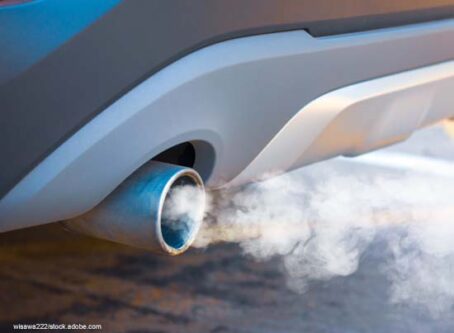FMCSA officials provide update on drug clearinghouse, driver training rules
Officials with the Federal Motor Carrier Safety Administration gave drivers an in-person update on the status of major changes to drug clearinghouse and driver training rules.
Joe DeLorenzo, director of the agency’s office of enforcement and compliance, and Larry Minor, deputy administrator in the agency’s office of policy, spent about an hour briefing industry professionals on some upcoming deadlines for the recent rules changes.
Earlier this month, FMCSA launched a web page for the upcoming CDL Drug and Alcohol Clearinghouse.
The webpage provides information about the clearinghouse, including a fact sheet, a list of frequently asked questions, and a place where truck drivers can sign up to receive email updates about the regulation, which is set to be implemented on Jan. 6, 2020.
All CDL holders who operate a commercial motor vehicle on public roads will be affected by the regulation. The clearinghouse was mandated by the Moving Ahead for Progress in the 21st Century Act.
Registration for the clearinghouse is scheduled to begin this fall. By Jan. 6, 2020, “employers must conduct electronic queries within the clearinghouse and manual inquiries with previous employers to cover the preceding three years.” Registration is free.
“What I would like to see is everybody register between October and January,” DeLorenzo said.
When asked if every driver must register by January, DeLorenzo said those who are not actively looking for a job or planning to switch jobs in the near future do not necessarily need to be registered by January 6.
“You don’t have to be registered by January unless you’re looking for a new job,” he said.
FMCSA says the clearinghouse will be a secure online database that will allow the agency, commercial motor vehicle employers, state driver licensing agencies and law enforcement officials to identify in real time CDL holders who have violated federal drug and alcohol testing requirements.
Minor’s update on entry-level driver training also focused on online registration, this time for training providers in advance of the rule’s Feb. 7, 2020, effective date.
Training providers must register with FMCSA, and will self-certify. For new drivers who complete a registered training course, the provider will send the completion documents electronically to FMCSA, which will forward that information on to state driver’s licensing offices.
Minor said the agency’s decision not to mandate a minimum number of hours for skills or classroom training was about making the new curriculum “as performance-based as possible.”
“If (students) haven’t demonstrated mastery of the skills, they shouldn’t pass the course,” he said.
Initially passed in 2016, the driver training curriculum areas are for individuals seeking Class A and Class B commercial driver’s licenses to drive trucks and/or buses. Instead of including a minimum number of training hours, the FMCSA opted for a proficiency-based approach. The trainers will be required to check off on a list of skills as each is mastered.
As part of the negotiated rulemaking, FMCSA formed a committee of 26 industry stakeholders and charged them to develop the recommended framework for the final rule on driver training. Twenty-four of the 26 members of the negotiated rulemaking committee agreed that 30 hours of behind-the-wheel training should be required. American Trucking Associations and the National Association of Small Trucking Companies opposed any number of required hours behind the wheel.
The Owner-Operator Independent Drivers Association, which took part in the negotiated rulemaking, has long supported including a minimum number of driver training hours.
In December 2016, OOIDA, along with Advocates for Highway and Auto Safety, the Truck Safety Coalition, and Citizens for Reliable and Safe Highways, filed a petition for reconsideration of the final rule.
Two issues not on the agenda for Thursday’s discussion were hours of service, which is expected to be addressed Friday afternoon at the show during a joint session with Transportation Secretary Elaine Chao and FMCSA administrator Ray Martinez, and electronic logging devices, which are the topic of a Saturday morning session at MATS.
DeLorenzo also stated that the agency is expected to put forward an Advanced Notice of Proposed Rulemaking to seek comments to update the definition of an agricultural commodity.









